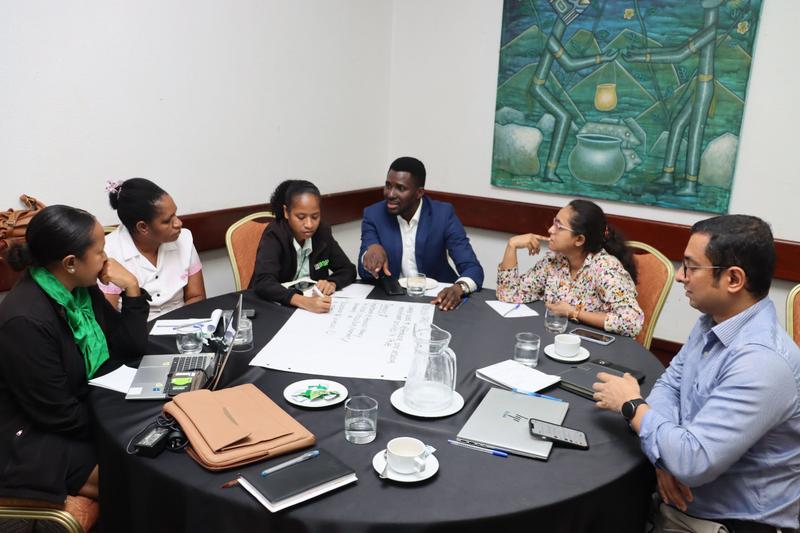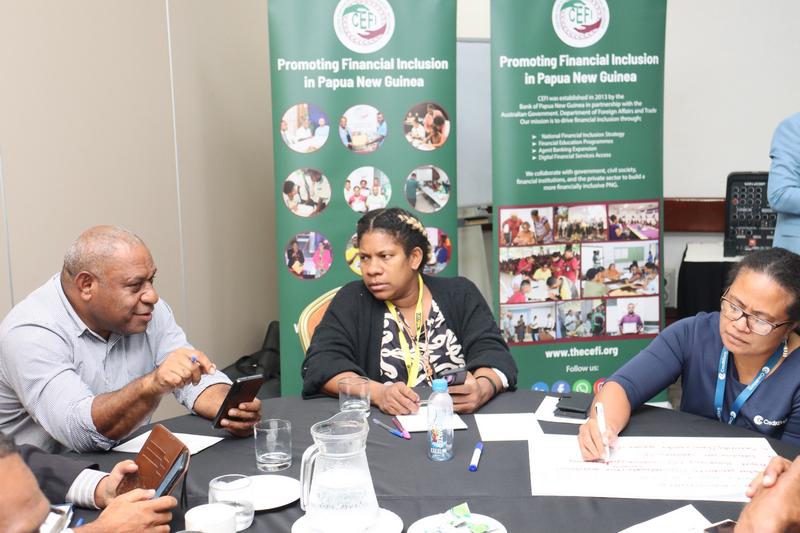The Bank of Papua New Guinea (BPNG) has reaffirmed its commitment to building an inclusive financial system, underscoring microfinance as a key driver of national development and economic empowerment.
Deputy Governor of BPNG Jeffery Yabom delivered the message during his keynote address at the PNG Microfinance Diagnostic Validation Workshop on 3 September at the Crown Hotel in Port Moresby. The workshop, facilitated by the Asian Development Bank (ADB), brought together financial institutions, the Credit Guarantee Corporation, the Centre for Excellence in Financial Inclusion (CEFI), the SME Corporation and other stakeholders.
Yabom stressed that financial inclusion remains one of PNG’s greatest development priorities, noting that more than 80 percent of the population live in rural and remote areas with limited access to banking services. He described microfinance as a “lifeline” for families, enabling them to save, invest, pay for education and grow small businesses that support community development.
Reflecting on progress, he cited PNG’s commitments under the Maya Declaration on Financial Inclusion in 2013, when fewer than 20 percent of citizens had access to formal financial services.
“Today, under the National Financial Inclusion Strategy 2023–2027, there are more than 4.3 million bank accounts, a result of the combined efforts of BPNG, financial institutions, and development partners,” he said.

Despite this progress, Yabom acknowledged persistent challenges, including high costs of serving rural communities, weak governance in some microfinance institutions and limited diversity in financial products. He called on stakeholders to expand offerings such as micro-insurance, remittances and SME-focused services, while also strengthening consumer protection and regulatory oversight.
He further highlighted opportunities through digital finance, women’s economic empowerment, strategic partnerships and climate-resilient “green finance.” These, he said, would be vital in aligning financial inclusion with PNG’s Vision 2050 and medium-term development strategies.
“BPNG will continue working closely with government, the private sector, and development partners to ensure that microfinance remains sustainable, innovative, and inclusive,” Yabom assured.
Supporting these messages, ADB consultant Jagdeep Dahiya presented two analyses of the sector. He noted that although PNG’s financial system has grown since the Microfinance Expansion Project, which established CEFI, microfinance institutions still account for less than three percent of total sector assets. Services remain concentrated in urban centres, and many Papua New Guineans continue to rely heavily on informal lending.

Dahiya further observed that while deposit ownership has increased, access to credit remains limited and a widening gender gap in financial inclusion persists. He identified weak regulatory incentives, poor infrastructure, low digital literacy and high banking fees as major barriers.
Thus, he recommended reforms to strengthen policy frameworks, increase funding for microfinance institutions and foster innovation in digital finance to reach underserved communities.
The workshop concluded with open discussions and feedback, reflecting a shared commitment among stakeholders to advance inclusive finance.
As BPNG sharpens its focus, the central bank’s leadership is expected to play a decisive role in shaping policies and partnerships that will bring banking and financial services closer to every Papua New Guinean.










